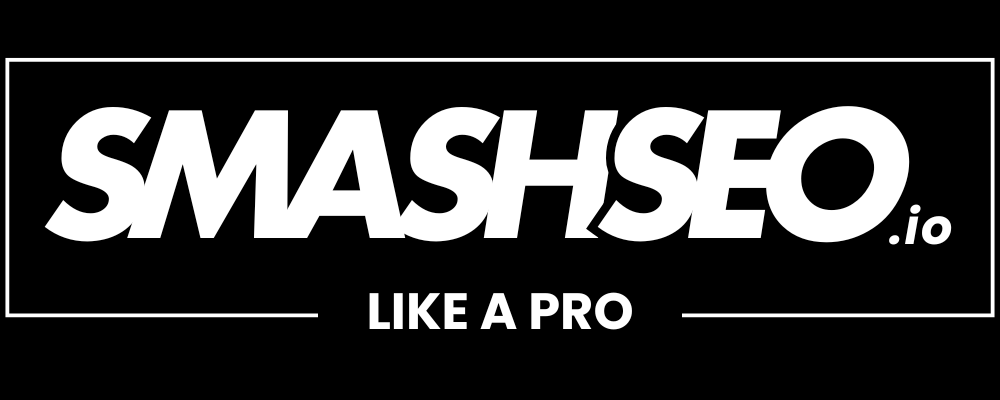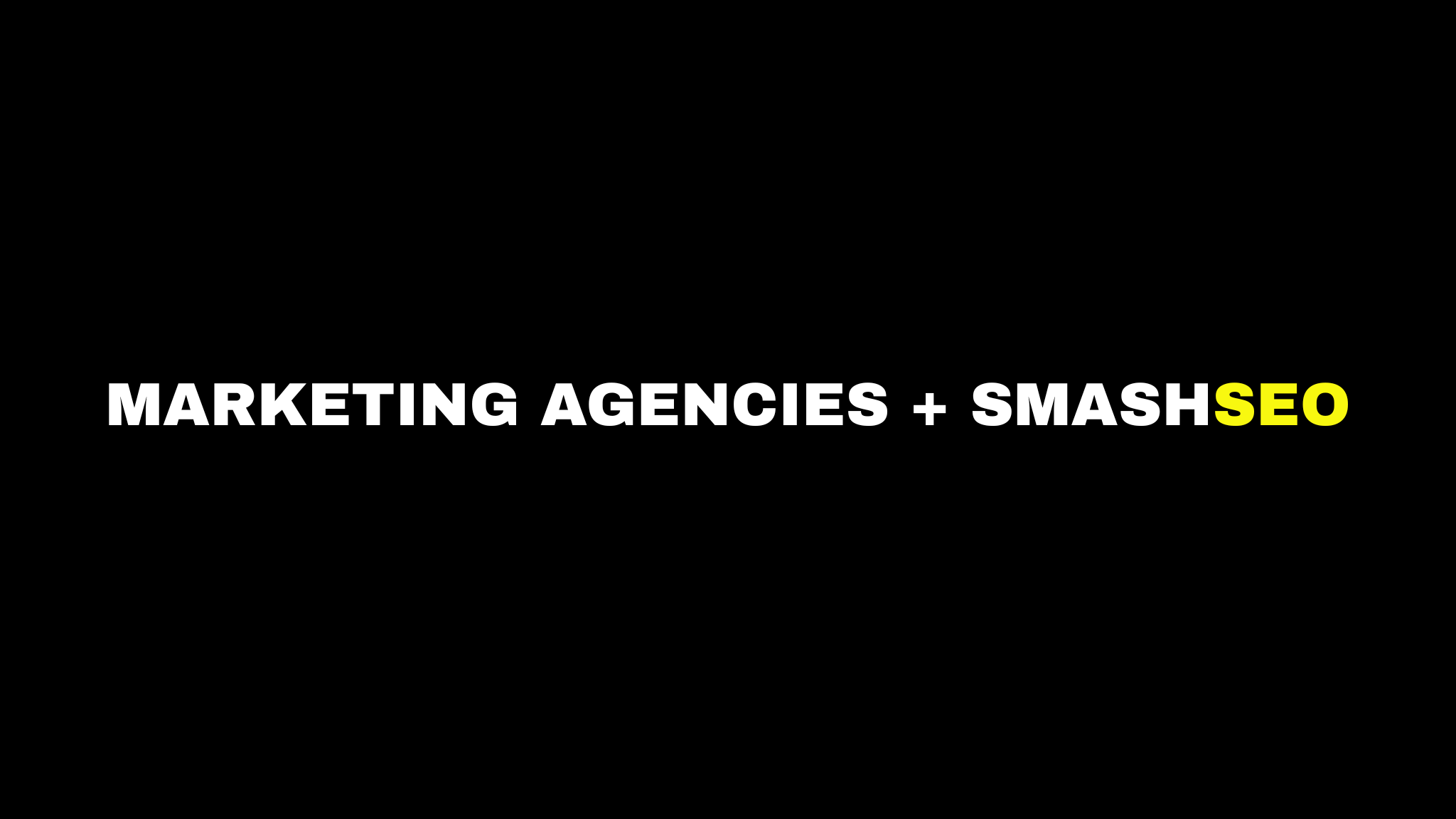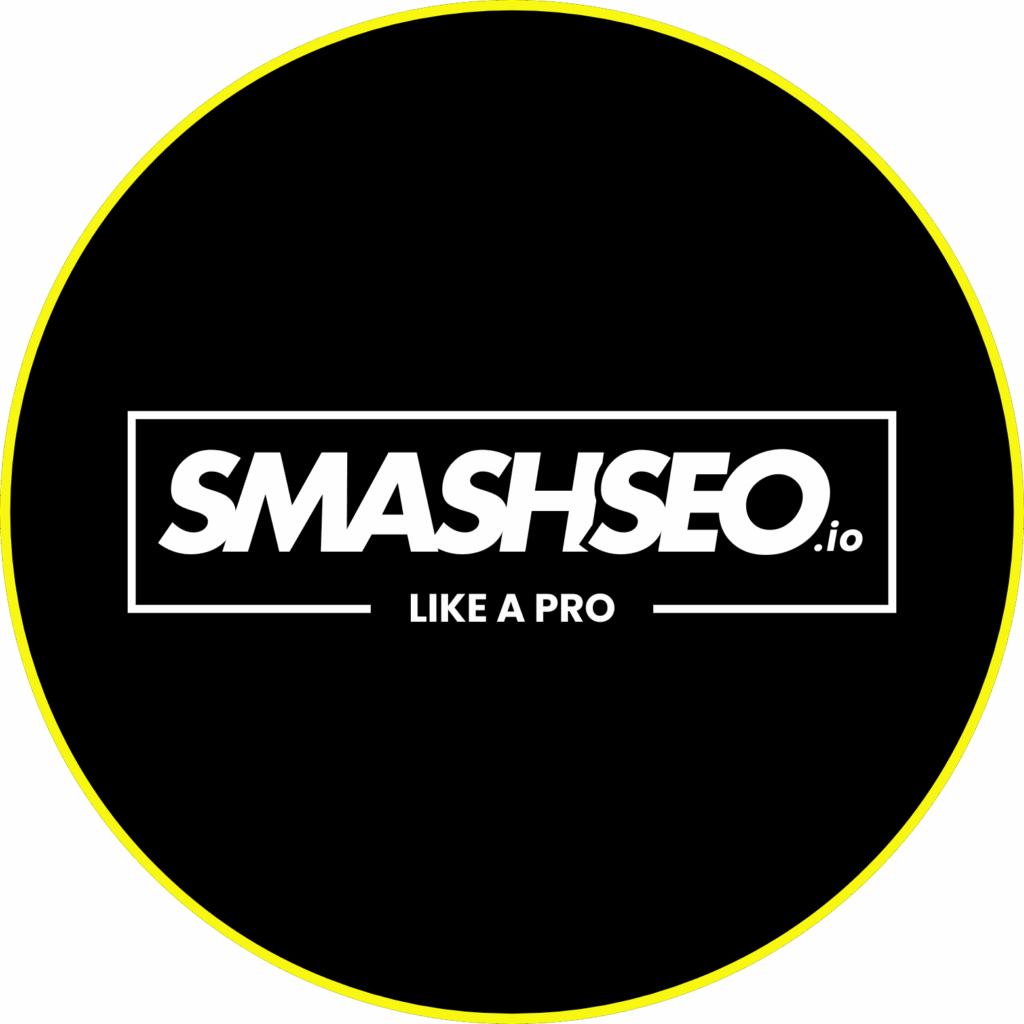The reality is that SEO efficiency has become the cornerstone of successful agency operations, determining not just client satisfaction but also profitability and scalability. Marketing agencies are discovering that their ability to generate high-quality, SEO-friendly content at scale directly correlates with their capacity to retain clients, win new business, and maintain healthy profit margins. However, the conventional methods of achieving this efficiency—hiring large teams of copywriters and SEO specialists—often prove prohibitively expensive and difficult to scale effectively.
This comprehensive guide explores how modern marketing agencies can revolutionise their SEO content creation processes, dramatically increase efficiency, and deliver superior results for their clients without the traditional overheads and complications. We’ll examine the specific challenges facing agencies today and demonstrate how innovative solutions like our SmashSEO platform are transforming the way agencies approach SEO content generation and workflow optimisation.
Understanding the SEO Efficiency Challenge for Modern Marketing Agencies
Marketing agencies operating in today’s competitive environment face a complex web of challenges that traditional SEO approaches simply cannot address effectively. The fundamental issue lies in the disconnect between client expectations and the practical realities of content creation. Clients increasingly expect rapid results, consistent content output, and measurable organic growth, whilst agencies struggle with resource constraints, skill gaps, and the time-intensive nature of quality SEO content creation.
According to HubSpot’s 2024 marketing statistics, websites, blogs, and SEO efforts represent the top marketing channel driving ROI for B2B brands, highlighting the critical importance of efficient SEO content strategies. This data underscores why agencies must prioritise SEO efficiency to remain competitive and deliver value to their clients.
The traditional agency model typically involves hiring specialist copywriters and SEO experts, each commanding substantial salaries and requiring ongoing training to stay current with algorithm updates and best practices. This approach creates several bottlenecks: limited scalability due to human resource constraints, inconsistent quality across different writers, and significant time investments required for briefing, reviewing, and optimising content. Additionally, the specialist knowledge required for effective SEO integration often means agencies must choose between hiring expensive experts or accepting suboptimal results from generalist writers.
Many agencies find themselves caught in a cycle where they’re spending substantial portions of their client budgets on content creation, leaving little room for other essential marketing activities. This situation becomes particularly challenging when working with clients who have ambitious organic growth targets but realistic budget constraints. The pressure to deliver results whilst maintaining profitability often forces agencies to make difficult decisions about resource allocation and service quality.
The Hidden Costs of Traditional SEO Content Creation Methods
When marketing agencies rely on conventional content creation approaches, they encounter numerous hidden costs that significantly impact their operational efficiency and profitability. The most obvious expense is personnel costs, but the true financial impact extends far beyond basic salaries and includes training, management overhead, quality control processes, and the opportunity costs associated with slower content production cycles.
Consider the typical workflow for creating SEO-optimised content in a traditional agency setting: initial keyword research and strategy development, content brief creation, assignment to appropriate writers, multiple rounds of revisions, SEO optimisation reviews, client approval processes, and final publication. Each stage requires dedicated time from skilled professionals, creating a cumulative cost that often exceeds initial budget estimates. Furthermore, the time lag between content conception and publication can significantly impact campaign effectiveness, particularly in competitive industries where timing is crucial.
Quality control presents another significant challenge, as ensuring consistency across multiple writers requires substantial management oversight. Agencies often find themselves investing considerable resources in editing, fact-checking, and optimisation reviews, effectively doubling the time required for content creation. The need to maintain brand voice consistency across different writers adds another layer of complexity, requiring detailed style guides and ongoing training initiatives.
Perhaps most critically, the scalability limitations of traditional approaches mean agencies often struggle to meet client demands during peak periods or when managing multiple campaigns simultaneously. This constraint can lead to missed opportunities, client dissatisfaction, and the need to turn away potentially profitable business. The inability to scale content production efficiently becomes a fundamental barrier to agency growth and success.
How SEO Content Automation Transforms Agency Operations
The emergence of sophisticated SEO content automation tools represents a paradigm shift in how marketing agencies can approach content creation and optimisation. Rather than replacing human creativity and strategic thinking, these tools amplify agency capabilities by handling the technical and time-intensive aspects of SEO content generation, allowing professionals to focus on strategy, client relationships, and campaign optimisation.
Modern automation platforms integrate advanced AI capabilities with proven SEO methodologies, creating a powerful combination that can generate high-quality, optimised content at unprecedented speeds. This integration addresses the core challenges facing agencies: the need for speed, consistency, scalability, and technical accuracy in SEO implementation. By automating the technical aspects of content creation, agencies can redirect their human resources towards higher-value activities such as strategic planning, performance analysis, and client consultation.
The transformation extends beyond mere efficiency gains to encompass fundamental changes in how agencies structure their operations and deliver value to clients. With automated content generation capabilities, agencies can offer more comprehensive services, take on larger clients, and maintain consistent quality standards across all projects. The predictability of automated processes also enables more accurate project planning and resource allocation, improving overall operational efficiency.
Automation also democratises access to advanced SEO expertise, allowing smaller agencies to compete effectively with larger organisations that traditionally had advantages in terms of specialist knowledge and resources. This levelling of the playing field creates new opportunities for agencies to differentiate themselves based on strategic insight and client service rather than simply resource availability.
Key Features That Drive SEO Efficiency in Agency Tools
When evaluating SEO automation tools for agency use, several critical features distinguish truly effective solutions from basic content generation platforms. The most important characteristic is the integration of SEO best practices directly into the content creation process, ensuring that technical optimisation occurs automatically rather than as a separate, manual step. This integration includes proper keyword density management, meta tag generation, internal linking suggestions, and adherence to current search engine guidelines.
Scalability features are equally crucial, as agencies need tools that can handle varying workloads without compromising quality or requiring proportional increases in management overhead. Effective platforms should support batch content generation, template customisation for different clients, and automated workflow management that reduces the need for manual intervention in routine processes.
Brand consistency capabilities ensure that content maintains appropriate tone, style, and messaging across all generated pieces, addressing one of the primary challenges agencies face when working with multiple writers. Advanced platforms learn from existing brand materials and client preferences, gradually improving their ability to produce content that aligns with specific brand requirements.
Performance tracking and optimisation features provide agencies with the data needed to demonstrate value to clients and continuously improve campaign effectiveness. These capabilities should include content performance analytics, SEO ranking monitoring, and suggestions for content updates based on changing search trends and algorithm updates.
Implementing SEO Workflow Optimization in Your Agency
Successfully implementing SEO workflow optimisation requires a strategic approach that considers both technical capabilities and organisational change management. Agencies must begin by conducting a thorough audit of their current content creation processes, identifying bottlenecks, inefficiencies, and opportunities for automation. This analysis should encompass not just the technical aspects of content creation but also client communication, approval processes, and performance measurement systems.
The implementation process should be phased, beginning with pilot projects that allow agencies to test new workflows and tools without disrupting existing client relationships. During this phase, it’s essential to establish clear success metrics and feedback mechanisms that enable continuous refinement of processes and procedures. Staff training and change management initiatives are crucial during this period, as team members need to understand how automation enhances rather than replaces their roles.
Integration with existing agency systems and processes requires careful planning to ensure seamless workflow transitions. This includes compatibility with current project management tools, client reporting systems, and quality assurance processes. The goal is to enhance existing capabilities rather than creating entirely new operational frameworks that require extensive retraining and adjustment periods.
As highlighted by Michigan Tech’s SEO guidance, establishing a clear SEO optimisation strategy and regularly updating content are fundamental steps to boost website ranking, principles that should be embedded into any workflow optimisation initiative.
Measuring and Demonstrating SEO Efficiency Improvements
Quantifying the impact of SEO efficiency improvements requires comprehensive measurement frameworks that capture both operational metrics and client outcomes. Agencies should track key performance indicators such as content production speed, cost per piece of content, time from brief to publication, and quality consistency scores. These operational metrics provide insight into internal efficiency gains and help justify investments in automation tools and process improvements.
Client-facing metrics are equally important and should include organic traffic growth, keyword ranking improvements, conversion rates from organic traffic, and overall return on investment for SEO campaigns. These metrics demonstrate the value delivered to clients and support retention and growth initiatives. The ability to show consistent, measurable results across multiple clients strengthens the agency’s market position and supports premium pricing strategies.
Reporting systems should be designed to highlight the connection between operational efficiency improvements and client results, demonstrating how streamlined processes translate into better outcomes. This connection is crucial for client education and helps justify the strategic value of efficiency investments. Regular reporting also enables agencies to identify areas for further improvement and optimisation.
Benchmarking against industry standards and competitor performance provides additional context for efficiency measurements and helps agencies understand their relative market position. This comparative analysis can inform strategic decisions about tool selection, process improvements, and competitive positioning.
The Future of Agency SEO: Scaling Content Creation at Speed
The trajectory of agency SEO is clearly moving towards greater automation, sophistication, and scale, driven by client demands for faster results and more comprehensive coverage. Agencies that embrace this evolution position themselves for sustainable growth and competitive advantage, whilst those that resist change risk obsolescence in an increasingly dynamic marketplace.
Emerging technologies promise even greater efficiency gains, with AI capabilities becoming more sophisticated and better integrated with SEO best practices. Future developments will likely include more nuanced understanding of search intent, improved content personalisation capabilities, and enhanced integration with broader marketing automation systems. These advances will enable agencies to offer more comprehensive, data-driven services that deliver superior results for clients.
The democratisation of advanced SEO capabilities through automation tools is reshaping the competitive landscape, allowing smaller agencies to compete effectively with larger organisations. This trend creates opportunities for specialisation and niche positioning, as agencies can focus on specific industries or service areas without being constrained by resource limitations.
As research on digital marketing effectiveness demonstrates, the integration of advanced digital tools can have significant influence on brand loyalty, sustainability, and business effectiveness, highlighting the strategic importance of embracing technological solutions in agency operations.
Why SmashSEO is the Ultimate Solution for Marketing Agencies
We’ve designed SmashSEO specifically to address the unique challenges facing marketing agencies in today’s competitive environment. Our platform combines advanced AI capabilities with deep SEO expertise, creating a solution that delivers the speed, quality, and scalability agencies need to thrive. Unlike generic AI writing tools, we’ve built our entire framework around SEO best practices, ensuring that every piece of content generated meets the highest standards for search engine optimisation.
Our platform addresses the core pain points agencies experience: the inability to scale content creation efficiently, the high costs associated with specialist hiring, and the challenge of maintaining consistent quality across large volumes of content. By automating the technical aspects of SEO content creation, we enable agencies to redirect their resources towards strategic planning, client relationships, and campaign optimisation—activities that truly differentiate successful agencies from their competitors.
The flexibility of our pricing structure, with plans starting from £50 per month, makes advanced SEO content automation accessible to agencies of all sizes. Whether you’re a freelancer working with local clients or a growing agency managing multiple enterprise accounts, our platform scales to meet your needs without requiring prohibitive upfront investments or long-term commitments.
For agencies looking to understand the fundamentals of effective SEO strategy, our comprehensive guide on what is SEO provides essential insights into search engine optimisation principles and their practical application in agency settings.
We’re so confident in our platform’s ability to transform agency operations that we use SmashSEO ourselves for all our content creation needs. This real-world application ensures that our tool meets the practical demands of professional content creation and delivers the results agencies need to succeed. Discover how SmashSEO can revolutionise your agency’s content creation process and start generating SEO-optimised content at scale today.
Frequently Asked Questions
How quickly can marketing agencies see efficiency improvements after implementing SEO content automation?
Most agencies experience immediate improvements in content production speed, with many reporting 3-5x faster content creation within the first week of implementation. The full efficiency benefits, including improved workflow integration and team productivity gains, typically become apparent within 2-4 weeks as teams become familiar with automated processes and optimise their workflows accordingly.
Can automated SEO content tools maintain the same quality standards as human-written content?
Modern SEO automation platforms like SmashSEO are designed to meet and often exceed traditional quality standards by incorporating SEO best practices directly into the content generation process. The consistency of automated tools actually helps maintain higher quality standards across large volumes of content, eliminating the variability that often occurs with multiple human writers while ensuring technical SEO requirements are always met.
What level of technical knowledge do agency teams need to effectively use SEO content automation tools?
Most contemporary SEO automation platforms are designed for ease of use and require minimal technical expertise. Agency teams typically need basic understanding of SEO principles and content strategy, but the technical implementation is handled automatically by the platform. Training requirements are generally limited to understanding the platform interface and optimising input parameters for best results, making these tools accessible to agencies regardless of their technical background.



